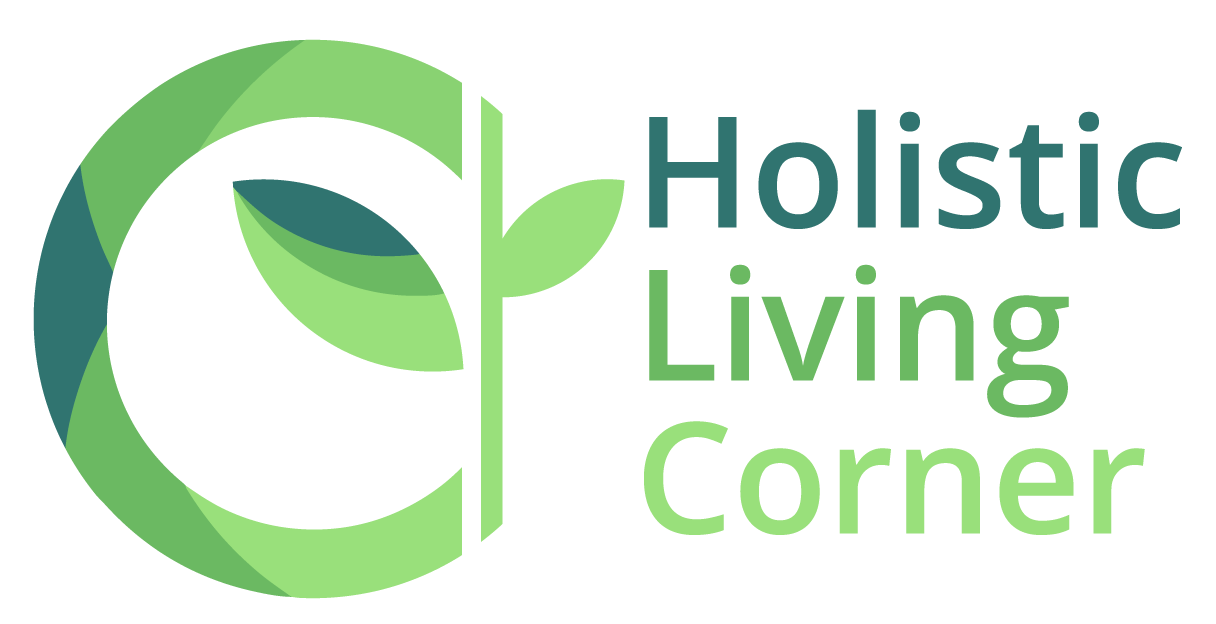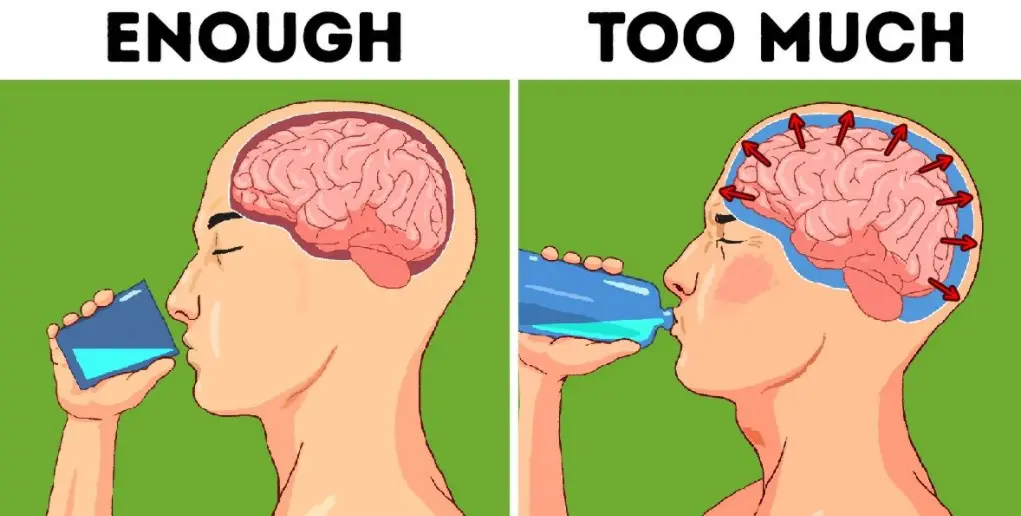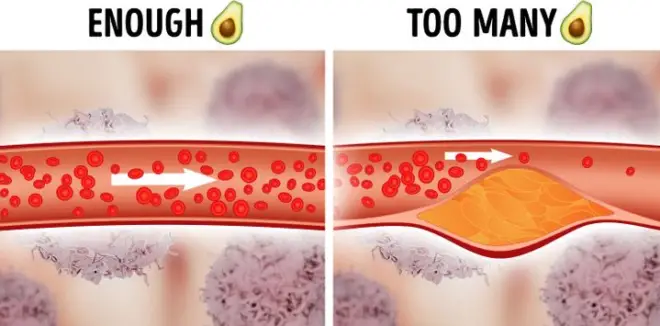We all know that we need to eat healthy and have a balanced diet. We are familiar with what healthy food means and we know which products actually belong to healthy food. But do we know that there are restrictions on the consumption of certain healthy foods? Do we know that even with healthy food we should not overdo it? Let’s find out what are those 8 healthy foods that it should not be exaggerated.
- Carrots
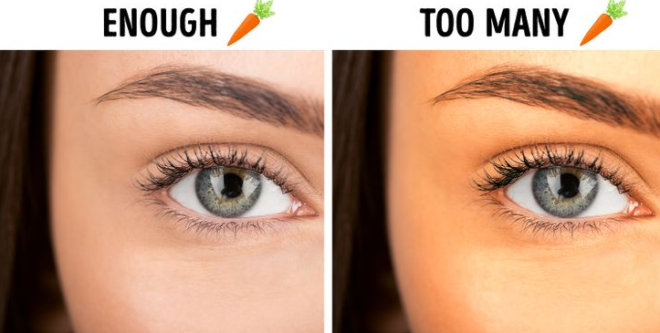
Credits to: © depositphotos.com, © depositphotos.com
Carrots are one of the healthiest vegetables with many beneficial and healing properties for health. It originates from Afghanistan and is used as food all year round all over the world. This vegetable is rich in beta carotene, and in addition to eyesight, it is also great for detoxification and weight loss, because it contains large amounts of fiber and vitamin A. However, overdose can lead to side effects. They are caused by too much beta-carotene, the molecule responsible for the orange color of carrots and the precursor of vitamin A, and higher amounts of beta-carotene can cause skin discoloration. Carotenemia is generally a harmless condition from which it is easy to recover.
- Kombucha

Credits to: © shutterstock.com
Kombucha is a healthy drink made from Japanese tea fungus kombucha. Kombucha contains several times more vitamin C than lemon. It contains B vitamins: B1, B2, B3, B6 and B12. It also contains different types of enzymes. It is especially important to note the presence of lactic acid – L acid, which in one liter of liquid can reach up to 3 ml. The most important component found in large quantities in kombucha extract is glucuronic acid. In addition to its use as a refreshing drink, it is often used as a medicine. It serves as a prevention against cancer; improves breathing; cleanses blood vessels; helps to lose weight; strengthens the muscles of the legs etc. However, kombucha also contains a compound called “fodmap”, a byproduct of yeast fermentation that, if consumed in large quantities, can cause bloating and indigestion.
- Water

Water is essential for life. People can survive much longer without food than without water. The only thing we need for life from water is air. Water makes up about 60-70% of our body weight. Therefore, every part of our body needs it to function properly. Insufficient water intake leads to dehydration, in which case the normal functioning of the body is impossible. Even poor dehydration immediately has negative consequences such as decreased energy, headaches, fatigue. On the other hand, too much water can create an electrolyte imbalance that leads to overwork of the kidneys. In extreme cases, water may accumulate in the brain, which increases the pressure on the skull.
- Avocado

Credits to: © depositphotos.com, © shutterstock.com, © shutterstock.com
Avocados contain many beneficial nutrients. This fruit is a source of vitamin K, folic acid, fiber and healthy fats. This fruit contains potassium. One avocado contains 240 calories, which is approximately 10% to 20% of a person’s ideal caloric intake. Excessive calorie intake causes clogged arteries. The measure is half or one avocado a day.
- Beetroot

Credits to: © depositphotos.com, © depositphotos.com
Beetroot is rich in nutrients and contains almost all minerals, calcium, potassium, sodium, phosphorus, magnesium, iron, fluorine manganese, copper, iodine, sulfur, lithium, strontium, bromine and many other useful ingredients that improve health. The most healing ingredients in beets are considered to be betanin and betaine, as they stimulate metabolism, regulate blood pressure, lower bad cholesterol, maintain vascular health, and stimulate liver function. A combination of beets and meat should not be consumed in large quantities as it may reduce blood pressure and may increase the chance of developing the disease.
- Seaweed
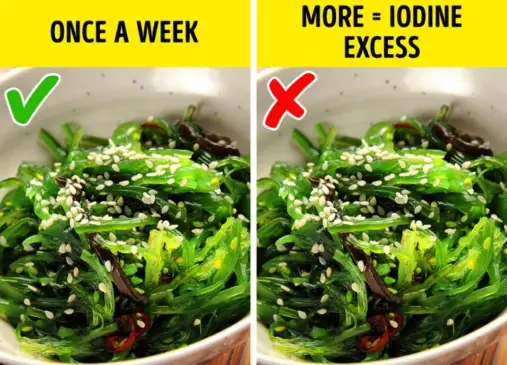
Credits to: © depositphotos.com
Seaweed is rich in nutrients and is a natural remedy for many health problems. Algae contain sodium, calcium, chlorine, potassium, sulfates, phosphates, and the trace elements iodine, iron, copper, zinc, selenium, molybdenum, fluorides, manganese, boron, nickel and cobalt. They have a large amount of iodine. However, caution should also be exercised when using seaweed, as it is very sensitive to all types of water pollution. It is therefore very important to know the origin of seaweed and the condition of the waters from which it is extracted. We need to know that seaweed also contains large amounts of iodine, and increased iodine intake can have harmful effects.
- Soy and its derivatives
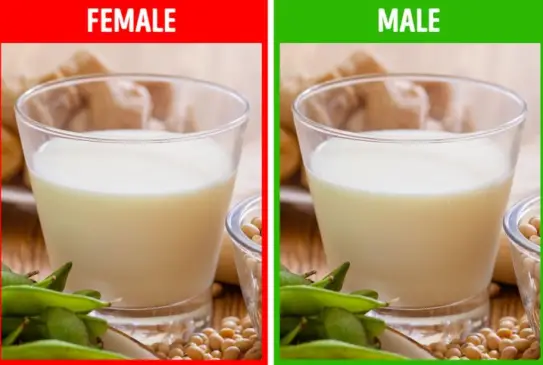
Credits to: © shutterstock.com
Soy foods belong to the legumes, they contain a lot of nutrients and have a very beneficial effect on our health. Soy is very rich in protein, which makes it different from any other herb. It contains 9 essential amino acids, which are the amino acids that the body must ingest to function properly. Excessive consumption of soy can lead to thyroid problems.
- Chia seeds
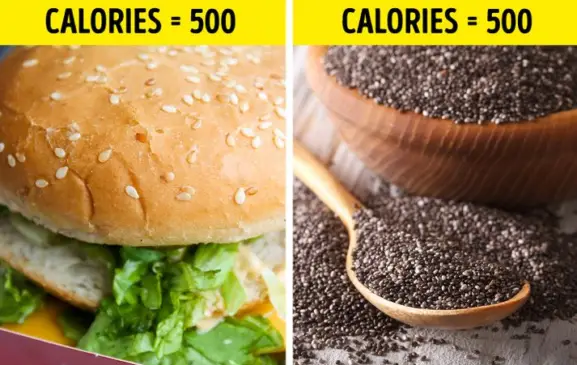
Credits to: © shutterstock.com, © shutterstock.com
Chia seeds are widely used as a dietary supplement. It is rich in omega 3 acids. The bad thing about all this is that in order to get those omega 3 acids, chia seeds need to be consumed in large quantities, ie 100 g of chia seeds should be eaten daily, which contains 500 calories, which is approximately the same as if we ate hamburger.
